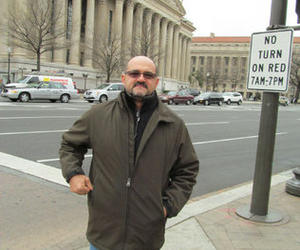Cuba reports more cholera among foreign visitors
- Submitted by: lena campos
- Health and Medicine
- 08 / 28 / 2013

Cuba-born New York high school teacher Alfredo Gómez says it was bad enough that he contracted cholera during a family visit to Havana this summer. Then he got a bill from the government hospital -- $4,700.
Gómez’ complaint came as Havana reported that a total of 12 foreign tourists and 151 Cubans have come down with cholera in recent months – though Gómez says his hospital ward alone had six to 15 foreigners on every one of the six days that he spent there.
The Havana report on cholera, the second in August alone, seemed to hint at a growing transparency by Cuban officials who previously kept quiet about the disease in a bid to avoid damaging the island’s $2.5 billion-a-year tourism industry, experts said.
A bulletin Friday by the Pan American Health Organization said Cuba that same day had reported 163 cases in the provinces of Havana, Santiago de Cuba and Camagüey. PAHO, the hemispheric branch of the World Health Organization, indicated that those cases took place this year but gave no specific time frame.
Among those cases were 12 persons who had travelled to Cuba from other countries – three from Italy, two each from Germany, Spain, Chile and Venezuela and one from the Netherlands, PAHO noted. Cuba had reported six of those cases to PAHO earlier this month.
Independent journalists and visitors like Gómez have been reporting hundreds more cases never confirmed by Cuba, where the state-run news media virtually never uses the word “cholera” and instead refers to cases of “acute diarrheic diseases.”
Gómez, 49, who left Cuba in 1997 and now teaches math at the William Nottingham High School in Syracuse, N.Y., said he and two relatives were hit by intense diarrheas two days after they ate together at a state-run restaurant in Havana in late July.
Doctors at the Manuel Fajardo Hospital told them they had cholera, Gómez said, and transferred him to the Pedro Kouri Institute of Tropical Medicine, where the fourth floor of the hospital is reserved for foreigners who contract the disease.
Gómez said at least six and up to 15 foreigners were on the floor each of the six days he spent there, Aug. 4-10, receiving antibiotics and intravenous fluids for the disease, which is easily transmitted through water and can kill through dehydration.
That same week more than 60 Cubans were being treated in Kouri hospital wards reserved for island residents with cholera, he said, and a nephew told him that a large number of people had been struck by the disease in the Havana suburb of Mantilla.
The treatment fore foreigners at the hospital was very good and much better than the treatment for island residents, he added, but problems started when the foreign patients received huge bills as they were about the leave the hospital.
He heard two Spaniards on the phone with their insurance companies in Madrid trying to figure out how and what to pay, Gómez said. And he was pressured strongly to pay his own bill with his credit cards or through his U.S. health insurance policy.
“They really want to charge me, and they tried by all means that I should pay,” he said in a phone interview from Syracuse. “It was a rude, abusive attitude. They would not let met leave without paying.”
The bill he was shown was for $4,700 but he left without paying, he added, arguing that the U.S. embargo banned him from paying and that in any case his bill should be paid by the government-run restaurant where he contracted cholera.
Source: Miami Herald.com
Comments